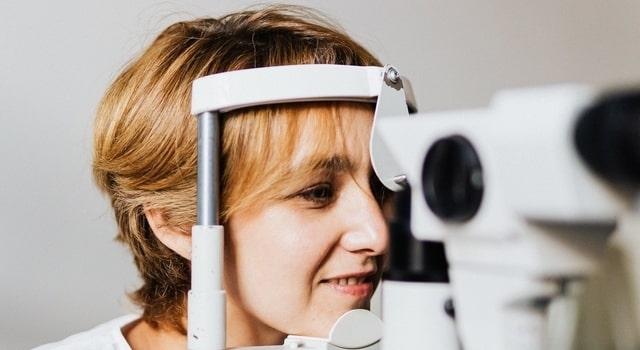
Seeing the world clearly is crucial, and many of us equate 20/20 vision with perfect eyesight. However, many people don’t realize that having 20/20 vision doesn't necessarily mean your vision is flawless. Various conditions can affect how well you see and interact with your surroundings. This can happen even if your visual acuity is technically perfect.
Below, our optometric team at Orbit Eyecare explores common issues that can impact vision beyond visual acuity. We also explain how regular eye exams can help detect and treat these problems.
Beyond Visual Acuity: Common Vision Issues
Convergence Insufficiency
Convergence insufficiency (CI) is a condition where your eyes struggle to work together when looking at close objects. People with CI may experience double vision, eye strain, headaches, and difficulty concentrating. These symptoms are especially noticeable during tasks like reading or using a computer. Even with 20/20 vision, an inability to properly converge the eyes can greatly affect daily activities and overall quality of life.
Divergence Insufficiency
Divergence insufficiency is the opposite of convergence insufficiency. It occurs when the eyes have difficulty aligning to focus on distant objects. Symptoms can include double vision, eye strain, and headaches, primarily when looking at faraway objects. This condition can make driving or seeing presentations from a distance challenging, even if you have sharp visual acuity.
Poor Visual Tracking
Visual tracking refers to the ability of the eyes to smoothly and accurately follow a moving object. Poor visual tracking can lead to difficulties in reading, sports, and even social interactions. People with this issue might lose their place while reading, have trouble catching a ball, or struggle with eye contact. This condition is not related to visual acuity but significantly affects functional vision.
Issues with Visual Focus
Problems with visual focus, such as accommodative dysfunction, can also occur despite having 20/20 vision. This condition involves difficulty in shifting focus between near and far objects. Symptoms may include eye strain, blurred vision, and headaches, particularly after prolonged close-up work. Accommodative issues can interfere with academic and professional performance, making it essential to address them promptly.
The Importance of Regular Eye Exams
Regular eye exams are vital in detecting and managing these vision issues. A comprehensive eye exam goes beyond checking for 20/20 vision. It assesses various aspects of eye health and functional vision. Here’s how regular eye exams can help:
Early Detection
Eye exams can identify conditions like convergence insufficiency, divergence insufficiency, poor visual tracking, and accommodative dysfunction early. Detecting these issues before they become more severe allows for timely intervention, reducing the risk of long-term complications.
Personalized Treatment Plans
Our team of eye care professionals can formulate a personalized treatment plan tailored to your specific needs. This may include vision therapy exercises, corrective lenses, or other treatments to improve functional vision. Addressing these issues promptly can enhance your overall quality of life and performance in daily activities.
Ongoing Monitoring and Support
Regular eye exams ensure continuous monitoring of your eye health and vision function. This ongoing support helps track progress and adjust your treatment plan, ensuring optimal results over time.
Ensure Optimal Vision with Regular Eye Exams
Having 20/20 vision is a significant achievement but doesn't guarantee perfect vision. Conditions like convergence insufficiency, divergence insufficiency, poor visual tracking, and issues with visual focus can still impact your ability to see effectively. They can also affect how you interact with the world.
Regular eye exams are crucial in detecting and managing these issues. They help you maintain optimal eye health and functional vision. Don't wait for symptoms to become severe. Request an eye exam with Orbit Eyecare to ensure your vision is at its best.
